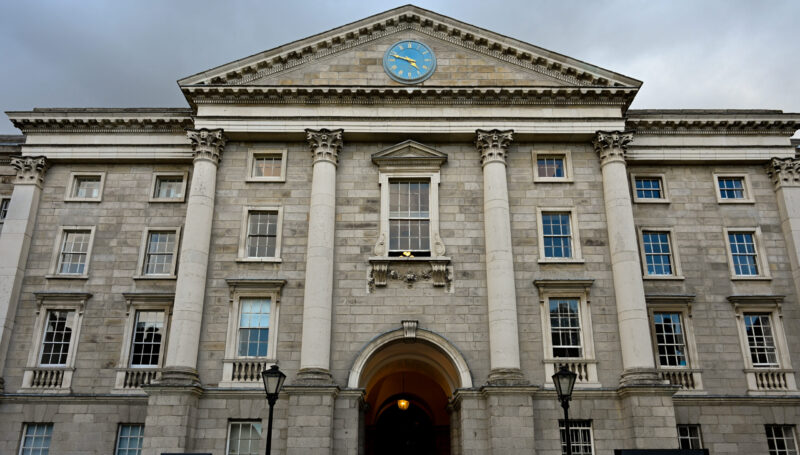College Board has approved a 2.33 per cent fee increase for non-EU undergraduate and all multi-annual postgraduate students for the 2023/24 academic year as well as in each of the subsequent four years.
The decision was made despite the dissent of all three Trinity College Dublin Students’ Union (TCDSU) board members. The increase is linked to inflation and a provision has been included to revisit the rate after two years.
The Graduate Students’ Union (GSU) President Gisèle Scanlon – who is the fourth student member of College Board – was not present at the meeting due to illness.
The move to increase fees beginning in the 2023/24 academic year comes after Provost Linda Doyle opted in March not to proceed with a similar 2.33 per cent increase for non-EU and postgraduate students in the 2022/23 academic year, despite a slim majority on Board voting for the hike.
In an email to students, TCDSU President Leah Keogh said: “We are incredibly dissatisfied that College continue to take advantage of international and postgraduate students, who are often the most exploited within our community.”
“Whilst we were successful in reducing the increase from a once proposed 5%-2.3%, these fees are already extortionately high and a major barrier to entry for so many.”
“We have insisted on a commitment to a fee strategy, which will explore how we currently set fees and provide scope to revise this model of exponential growth, along with ring-fenced funding to support international students in financial hardship”.
Keogh’s email linked to an email from Doyle, outlining the fee increases and their rationale.
In that email, Doyle said that while “the annual increase of 2.33% from 23/224 onwards is not something I’m sure students would welcome, this falls significantly short of the hyperinflation that we are experiencing at the moment”.
“We do need to ensure that we can continue to provide student supports and services at the current levels.”
“I note too the strong representations you and other student representatives made about the impact that fee increases have on the welfare of students, and this factored strongly in the Board’s decision to freeze fees for the coming academic year,” she added.







